Posts by worldrelief
Our Journey to ‘YES’: Ross & Emily Jones
Tell me a little about how you first got involved with World Relief?
We first learned about World Relief through Park Street Church in Boston. They were running a series on global justice, with a real emphasis on mission work. It was great to learn about how we might expand our passion for justice globally through World Relief—they were one of the first organizations we heard about that was really involved in social justice issues overseas. And they kind of became a tutor for us in learning about the issues of the world.
Tell me about your own decision making process when it came to charitable giving? Why do you give?
We’ve always believed we should give back, with both our time and money. Both Ross and I are very aligned in that we agree we don’t just want to keep stockpiling our resources and we want be good stewards of what we’ve been given. But I would say it was really about a decade ago that we got to a point in our philanthropic journey where both of us had this strong sense we didn’t want to keep living up to the standards that our finances would allow. We were concerned with the level of income and wealth inequality in the U.S., and I think we also believe there’s only so much you can enjoy in life before you experience a sense of diminishing returns. So we decided what kind of lifestyle we wanted and how much we needed to live that way. Then we agreed that anything we made above that, we’d give away.
God calls us to generosity in many ways. We felt called to use our money to go after the injustices in the world, and our foundation, Imago Dei, has been our response to that call. Of course, people give in many ways. You just have to listen to God, discern and discover what is yours to do.
How did you decide what and who to give to? What was important for you?
We were particularly drawn to World Relief’s focus on empowering and entrusting communities with their own change. When we went on a vision trip to Cambodia with World Relief, we saw small churches leading change in their communities, and it felt so much more empowering than just charity. It was the local church implementing the change that they wanted to see, not an outside intervention coming in and forcing something. In that sense, World Relief seemed to be navigating all the damaging colonialist undertones and aid dependence pitfalls very well. They really appeared to be catalyzing change from the inside out, delivering their work in and through the local church.
What’s been the most exciting thing you’ve seen or heard about as a result of your giving?
The sweet spot of our giving is to organizations (typically faith-based or faith-inspired) that are working to dismantle barriers for girls and women and helping them to become all God made them to be. We’ve been really inspired by the ways in which World Relief is working to integrate gender justice and reconciliation into their broader programming model, and entering into the gender struggles of our world. So many organizations tend to take a very specific programmatic approach—creating clubs or programs just for women and girls—but we know that to really get into gender norms and work to change those, you need to take a more holistic approach. World Relief supports churches as they wrestle with contradictions in culture and gender stereotypes, and encourage a holistic theology of wholeness and well‐being, embodied in Imago Dei.
What motivates you to continue giving today?
World Relief is really like a big family that keeps growing. It feels like this exciting movement—this amazing relational web, in which everyone truly believes in the organization. It really feels like a community. Sometimes when organizations are so big and bureaucratic, they lose their humanity. But we really feel like we’re part of something bigger at World Relief, part of a movement and a family. It feels very human.
We think they have that for many reasons. Probably most significant for us is that they help people and churches to embrace the liberating and holistic dimensions of the gospel. That is just so important in a world where there is a harmful use of religion for authoritarian purposes. World Relief really works to tap into the spiritual essence of the gospel, at a time when that is so needed. We’ve seen that play out this year in the U.S. in particular, where World Relief has shown so much moral courage in the face of the refugee and immigration crisis. As a family, it’s really touched us and we’ve been so grateful to have a guide that can speak with such a clear moral voice in relation to all that’s going on, especially when it’s really hard to know what on earth is happening. It really reminds you that this work of love, peace and justice can start right here in your backyard. You look out in the world and think about the world you want to create for your own children. Well, the answer is you start here and work outward.
How has your life been impacted or changed since you started giving to World Relief?
We’ve really enjoyed the shared solidarity and experience that comes with giving to an organization over the long haul. We’ve been able to learn so much about the world through World Relief. We’ve learned about what it takes to create change in a truly complex world. And we’ve learned about the role of faith in these complexities, about how we can use it to move the needle forward. World Relief reminds us to keep growing and learning about the world. It’s so easy to just go about your life, to be self absorbed, and sometimes the world’s problems seem so big you want to run away and stick your head in the sand. But there’s so much joy in doing your part, and doing it with others. Everyone we’ve met at World Relief is so dedicated; they quietly and passionately go about this amazing work and it reminds us that there’s always something you can do. We’re grateful for that moral courage that they demonstrate so admirably.
What would you say to other families that are thinking about giving to World Relief or a similar organization? Any advice or encouragement?
You know, giving can often feel like this really big and daunting thing but a little money can go a long way globally. God calls us, really invites us, into faithful stewardship. And it’s often when you lean in and give generously that you discover the greatest blessings in life.
We’d say start with your own humanity and your own heart. Allow yourself to feel the struggles of the world. Let them draw you in. You don’t have to figure it all out at once. Just start somewhere where you feel a natural affinity and see how it expands. Find where your heart is drawn and, from that point, just enjoy the journey. When it becomes more than just writing checks—that’s when you know it’s where your heart is.
Are you ready to find your ‘YES’?

Francesca Albano currently serves as Director of Branded Content at World Relief. With a background in Cultural Anthropology and a graduate degree in Strategic Marketing Communications, she connects her interests in societal studies and global cultures with her training in brand strategy and storytelling. Francesca is especially passionate about grassroots community development and the treatment and advancement of women and girls around the world.
Journeys to Belonging
This month we hosted our first storytelling night, “Journeys to Belonging,” at Beatnik Studios in downtown Sacramento. Over 200 attendees came to hear stories from refugee and immigrant women, as well as World Relief staff members highlighting different aspects of what it means to belong and feel connected to your new home. DeVon, Wade, World Relief’s Church Mobilizer, stated the fact that “when you know someone’s story, they move from being a stranger to becoming your neighbor.”
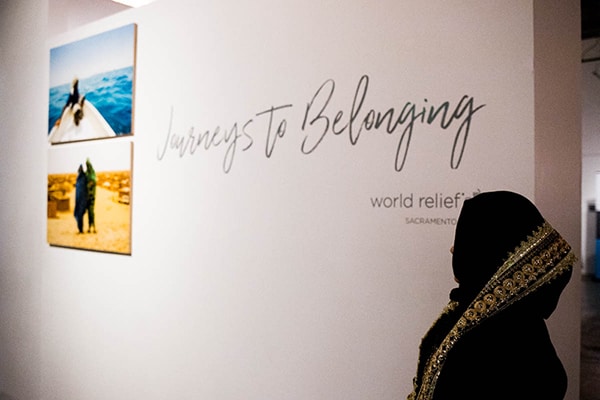
The night’s first speaker, Svitlana, came as a refugee from Ukraine. She and her husband wanted to raise their family in a safer place, one where there would be no threat of mandatory military service. She was expecting twins and was barely halfway through her pregnancy. Shortly after arriving in Sacramento, she went to the hospital for a checkup, and the doctor informed her that in a matter of minutes her first child would be born. At twenty seven weeks, she gave birth to her son and daughter. Her son needed an oxygen mask to breathe, and her daughter’s heartbeat was irregular. Svitlana’s World Relief caseworker asked what her family needed. They asked if World Relief could bring them food. They were spending as much time as they could at the hospital, going home only to shower, change clothes, and maybe get a few hours of sleep.
Svitlana expected World Relief volunteers to come, drop off food, and leave. She did not expect them to stay, to hold her children, to ask the doctors and nurses questions on their behalf. She did not expect to form friendships. Prior to coming to the United States, she thought of Americans as people who smiled and said, “How are you?” without meaning it. She no longer holds to that assumption and now describes Americans as genuine people. She concluded her story by inviting her husband and their two children to the stage, who were received with enthusiastic applause. At their last checkup, the doctors could not believe they had been born premature. Like the audience, all they saw were happy and active toddlers.
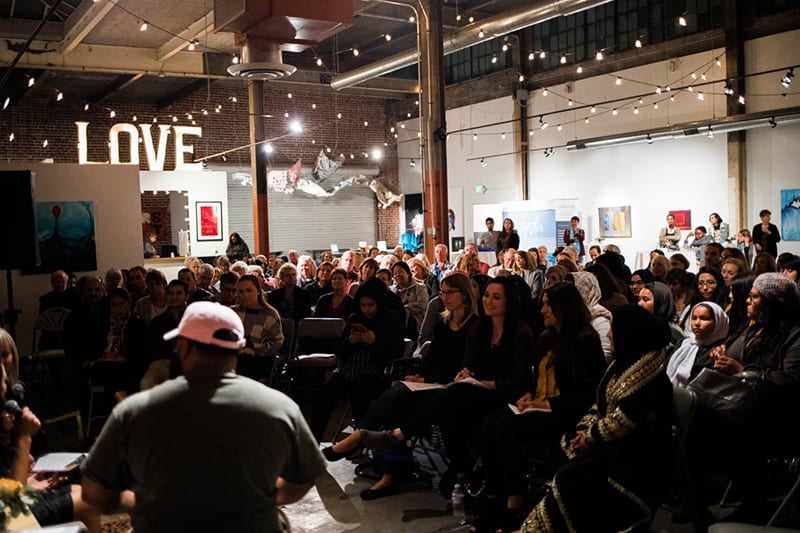
For the second storyteller, Irina, belonging had always been somewhat illusive. Born in Uzbekistan but having spent most of her life in Ukraine, she was ostracised. In her words, she was often “the only Asian girl in [her] class” and her family was protestant in an orthodox country. She and her husband, Paul, spent the first two years of their marriage in China, his home country. Because he was a Bible teacher, the government frequently threatened to revoke Irina’s visa. They tried returning to Ukraine, but when they refused to pay a bribe to the government, Paul’s visa was denied. So, they decided to seek asylum in the United States. Passports stacked on top of one another, they held hands and walked to the US-Mexico border. They were sent to detention centers on opposite ends of the country—Irina to Bakersfield,CA, and Paul to Georgia.
Of her detention experience Irina says, “I wouldn’t wish it on my worst enemy.” Even as she reflected on the experience, she told the audience about others who in her mind, however, had made more difficult journeys. Like the women from Eretria who started as group of four but were only three, their friend drowning while trying to cross a river. After four months, she won her case and came to Sacramento. Paul joined her a month later. Having spent most of their money on legal fees, they felt discouraged. A friend suggested they reach out to World Relief Sacramento for assistance. Irina was skeptical: “Why would they help me? I chose to leave Ukraine.” Nevertheless, she took her friend’s advice, and she and Paul received help with housing, employment, and transportation. This year they welcomed their first child, and Irina told the audience she was excited to raise her family in America. As a former client, she still feels connected to our office, maintaining friendships with staff. For her, Sacramento feels like home.
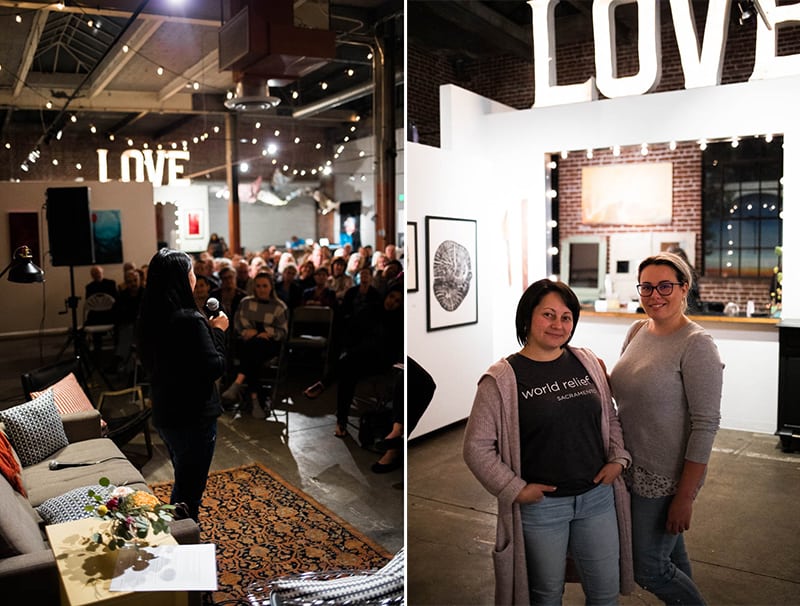
For Irina, making it to Sacramento was the start of her journey to belonging. Kobra, the night’s final storyteller, had hoped for the same. She thought that in America she would be a stronger, more independent woman. Growing up in Afghanistan, she had attended school for only four years before the Taliban banned girls from pursuing education. She liked school and had dreams of becoming a reporter. A few years ago, when she came to America, she enrolled in ESL classes. She wanted to learn the language, understand transportation systems and not be so dependent on her friends and neighbors who she felt had no time for her. The ESL classes, however, were not as helpful as she had hoped. The students were at different levels, most far more advanced than her, and when she asked questions, she was met with unkind, impatient remarks. She felt even more isolated and hopeless.
One of her friends had been attending World Relief’s ESL and activities classes. These were being (and continue to be) held at Kobra’s complex, and they are designed specifically for Afghan refugee women who have not learned to read or write in their native languages. The first few classes, Kobra said, she wasn’t sure what to think. Now, she wishes they were offered more than twice a week. She feels confident. The classes are good for her both “mentally and spiritually.” Kobra talked about practicing English with her husband and how she’d learned the difference between “love” and “like.” She flashed the audience a big smile as she said, “I love my husband. I like my mother-in-law.” The crowd laughed and cheered.
The number of refugees and displaced people is at an all time high. Now, more than, ever we want to hear refugee and immigrant voices. We are incredibly grateful for Svitlana, Irina and Kobra’s stories. Over the past three years, our region has welcomed more refugees than anywhere in the nation. Even as the number of refugees being admitted into the US decreases, our organizational mission does not change. The ingredients to making a new place home goes beyond the initial welcome and settling in process. We are committed to providing programs and services like employment and ESL classes that focus on integration and address barriers to belonging.
We are thankful for the staff who introduced each of our storytellers, to event volunteers who set up chairs and transformed a blank space into an intimate stage area that resembled a living room. We are grateful Society Church for providing AV and sound assistance, as well as our caterer, FreshMed, and the women from our refugee women’s classes who baked Afghan cookies for dessert. We look forward to hosting future social events like Journeys to Belonging where strangers become neighbors and friends become family.
The Immigration Facts: The Face of Asylum at the Southern Border
The Lion Men of Afghanistan
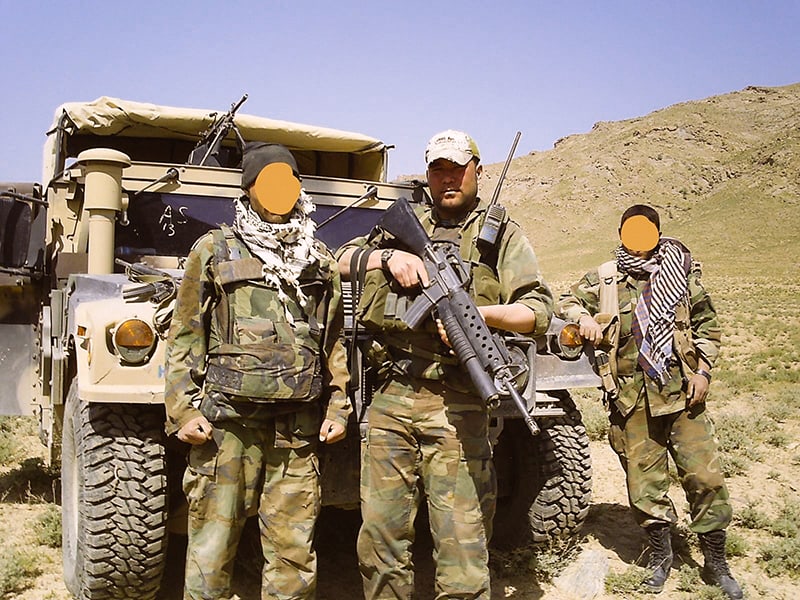
SACRIFICE AND THE COSTS OF THE REFUGEE SLOWDOWN
“As long as I am alive and breathing, you will be okay,” Ghulam exclaimed as he pulled Jawad out of the mangled U.S. army vehicle. They had trained for a scenario such as this many times before, but neither expected it would become their reality. Jawad, a linguist for the 82nd Airborne, had been trapped inside the very vehicle meant to protect him. He was bleeding badly and in shock. The unexpected IED strike killed Jawad’s co-passenger, and had it not been for Ghulam, Jawad might have experienced the same fate.
It would have been easy to panic, but Ghulam remained calm and even encouraging throughout. In Jawad’s words, he acted as a “true brother,” kindly laughing at Jawad’s fear and then giving him bravery and courage despite the grim circumstances. They had a job to do. There were three more sites to secure, three more IEDs to deal with. They needed to keep the Taliban at bay until reinforcements arrived. Jawad was medevac’d via Blackhawk helicopter to Lagman Hospital where he’d spend a month before making a full recovery. Ghulam had saved his life. By all accounts, he was a hero.
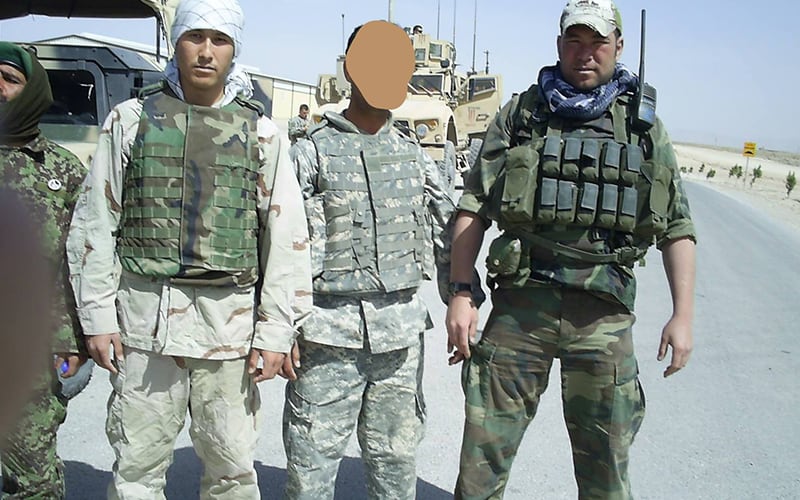
For 10 years, Ghulam served alongside the U.S. military in countless battles before making the difficult decision to apply for a Special Immigrant Visa (SIV) to come to the United States. Like so many Afghans and Iraqis who have dedicated their lives to serving our military efforts, this was a life-or-death decision for Ghulam. With more than 17,000 Afghans in the SIV pipeline, he knew obtaining a visa wouldn’t be easy. However, he hoped for a life free from combat where he could get married and have children. After all, he’d remained in contact with men like Jawad who had successfully come to the U.S. under the SIV program. Ghulam was never able to experience the life free from war he longed for. The extended screenings and waiting process proved fatal. This summer, Ghulam was killed by a Taliban-placed IED on the same stretch of road where he’d previously rescued Jawad.
From October 2016 through September 2017, the U.S. granted SIV status to 19,321 individuals from Afghanistan who had served the U.S. military. From October 2017 through September 2018, SIV arrivals were cut to just 9,953—less than half of the arrivals compared to the previous year. When asked about the drastic reduction in visas being issued, a Department of Homeland Security official said that “new vetting procedures to close security gaps and a more risk-based approach” had been implemented. This was after former Secretary of State Rex Tillerson directed American embassies to double down on visas and “increase scrutiny of visa applicants for potential security and non-security ineligibilities.” It is currently estimated that one SIV applicant is killed every 36 hours of fighting against terrorism in support of U.S. troops.
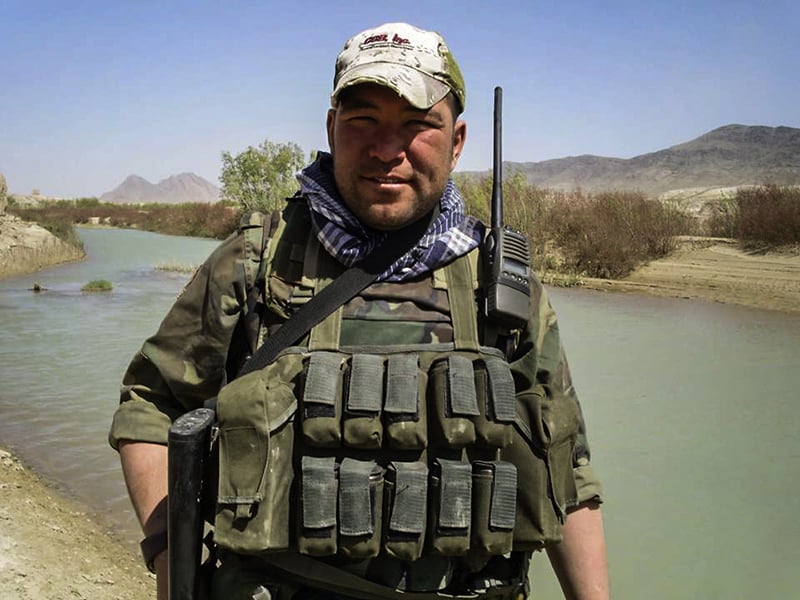
Though the security of America is the top priority in our policy and decision-making processes, we must also keep our political promises. When Congress passed the Afghan Allies Protection Act of 2009, we promised personal protection to Afghan nationals in exchange for their service and assistance of U.S. military actions within the country. Some of these roles consist of linguists, engineers, cultural advisors and soldiers. According to Scott Cooper, Director of National Security Outreach for Human Rights First, their participation remains vital for our intelligence collection efforts and the continued pursuit of peace in the region.
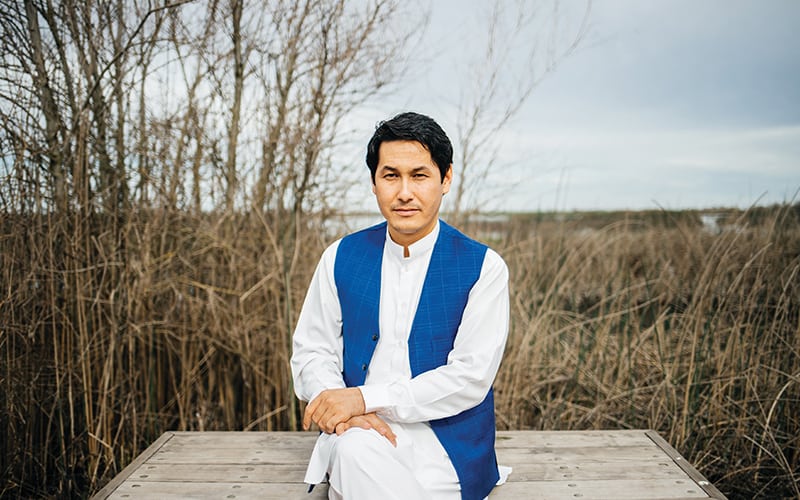
We must do better, balancing compassion and national security, as we remember those who have served alongside us. In January 2018, Jawad became World Relief Sacramento’s Afghan Cultural Advisor, acting as a liaison between staff and the refugees and immigrants we serve. He remains in contact with many of his “friends and brothers” who are still in Afghanistan waiting for their visas to be processed and the chance to experience what Ghulam had hoped for: a life of peace.
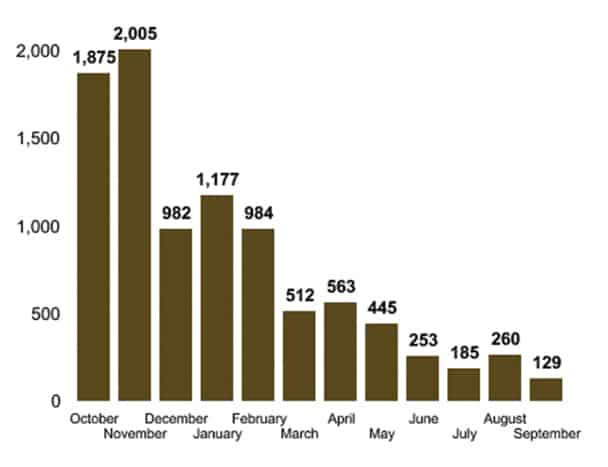
Resources Used
World Relief Responds to President Trump’s Asylum Announcement, Urges Caution
***FOR IMMEDIATE RELEASE***
November 9, 2018
CONTACT:
Lauren Carl
carl@pinkstongroup.com
703-388-6734
World Relief Responds to President Trump’s Asylum Announcement, Urges Caution
Baltimore, Md. – World Relief is deeply concerned by President Trump’s announcement this morning that the administration has signed a proclamation to significantly restrict the opportunity to request asylum at the U.S.-Mexico border.
Our asylum laws — which were designed to ensure that the United States should never allow someone who has a credible fear of persecution to be returned to a situation of violence or even death — are under threat and must be respected.
“For decades, World Relief has partnered with local churches to assist persecuted people in rebuilding their lives in the United States. We stand ready to do so now, and are deeply troubled by the news that our government may disregard our laws and restrict the opportunity to request asylum,” said World Relief president Scott Arbeiter.
“While some media reports have framed the recent movement of asylum seekers coming toward the U.S. border as a problem of illegal immigration, the right to request asylum is a part of longstanding U.S. law. World Relief has deployed legal services professionals to the border region on various occasions in recent months to help provide legal counsel to those seeking asylum. Our staff have witnessed those seeking asylum being told to wait for several weeks before being allowed to lawfully present their claims at the port of entry, which is why some have availed themselves of the legal option of requesting asylum elsewhere, as explicitly permitted by U.S. law. To attempt to restrict the right to request asylum is both morally troubling and legally questionable,” said World Relief senior vice president Emily B. Gray.
“Among the many individuals seeking asylum at our borders, there are many who very likely qualify for protections under the terms of our law and others who will likely not qualify,” noted Tim Breene, CEO of World Relief. “Our government has a responsibility to keep and enforce our immigration laws, which implies protecting our borders but also providing due process to each asylum seeker. We must provide protections to those entitled to it under our laws, and we should treat all those seeking asylum – even if they ultimately are not found to be eligible – with dignity and respect.”
Added Arbeiter, “While we call upon our government to follow U.S. law as it adjudicates each case, we also are mindful of the role of the church. Jesus instructs to love our neighbors, and he made clear in his parable of the Good Samaritan that the ‘neighbor’ whom we are called to love could specifically include a foreign traveler in need. We encourage Christians throughout the country to respond with Christ-like compassion to the plight of these individuals, and to advocate with our elected officials to ensure that life-saving asylum protections within U.S. law are not disregarded.”
Download the PDF version of this press release.
###
About World Relief:
World Relief is a global Christian humanitarian organization that seeks to overcome violence, poverty and injustice. Through love in action, we bring hope, healing and restoration to millions of the world’s most vulnerable women, men and children through vital and sustainable programs in disaster response, health and child development, economic development and peacebuilding, as well as refugee and immigration services in the U.S. For 75 years, we’ve partnered with churches and communities, currently across more than 20 countries, to provide relief from suffering and help people rebuild their lives.
Learn more at worldrelief.org.
How to Change a Broken World
We get it. And trust us when we say, we feel it too. This video is for you… http://www.findingyes.org Music: “Does Your Heart Break? (Instrumental)” by The Brilliance
World Relief Statement on Terrorist Attack
STATEMENT
October 29, 2018
World Relief Statement on Terrorist Attack
On Saturday, a gunman took the lives of eleven people at the Tree of Life synagogue in Pittsburgh, Pennsylvania. The alleged perpetrator was reportedly motivated by anti-Semitic views as well as by his hostility toward HIAS, an organization rooted in the Jewish faith, which for more than a century has assisted refugees and other immigrants.
Because World Relief, like HIAS, is among the nine national organizations that partner with the U.S. State Department to resettle refugees, this horrific attack hits particularly close to home. Our friends and partners at HIAS, as well as the entire American Jewish community, are in our prayers as they grieve this horrific loss of life. We join them in re-committing ourselves to the values of our respective faiths that compel us to welcome refugees and immigrants and to work against hatred, anti-Semitism and xenophobia.
Frontline Report: International Day of the Girl Child

Frontline Reports is a series written entirely by program experts and local staff on the ground where World Relief works – updating on the countries, contexts, and situations, as they evolve.
I grew up in the Democratic Republic of Congo, where at the time, my parents were serving as missionaries. My best friends were girls from local families. We sang in the church choir, had sleepovers, played soccer, and did our homework together. It was a sweet and simple time, where the different color of our skin and cultural backgrounds was forgotten. In those moments, we were just kids playing games and growing up together.
As we grew older, however, things began to change. At age 13, I continued with school, while my girlfriends began staying home to take care of their siblings, and cook and clean the house. Now considered mature adults at the tender age of 13, they were expected to shoulder the majority of household responsibilities. If their parents could not afford to pay their school fees, or if there was too much to do at home, they would miss school.
Then, at eighteen, when I was preparing to move to the US for college, one of my friends looked at me and said, “You are lucky. You can do anything you want. Please, don’t forget about us.” It was in that moment that it dawned on me that while I was looking ahead to a bright future with countless opportunities; most of my friends would stay behind, lucky if they could afford to complete secondary school in a war-torn, poverty-stricken country.
The Challenge
Today, there are over 1.1 billion girls in the world—girls with hopes, goals and dreams for their future. And while every girl deserves equal opportunity to build her future, there are still significant challenges and barriers that stand in the way for girls all over the world. Conflict, poverty, access to education, cultural and religious norms, and social conditions are all factors that today limit girls’ access to equal opportunity.
A recent report by UNESCO found there are 31 million girls of primary school age who are not in school [1], and adolescent girls in conflict zones and 90% more likely to drop out of school as compared to girls in conflict-free countries [2], which has significant impacts for their futures. Additionally, as families are displaced, the risk of sexual violence against girls and women increases drastically and families are forced to rely on negative coping mechanisms like early marriage and child labor.
Poverty is also a significant barrier for girls, as their educational future is often dictated by the economic position of the family. When families cannot afford to send both children to school, they will almost always choose to send the male child, as girls are seen as less valuable than boys. This also leaves girls at increased risk for early child marriage. Many cultures today still believe that a girl is ready for marriage upon reaching puberty, meaning girls are dropping out of school to get married. Each year, over 12 million girls are married before they reach 18 years old, compromising their future prospects for both work and financial security. Oftentimes, girls are married off to older men so that the bride price can support her family. Isolated and with limited freedom, these girls are deprived of their rights to health, education and safety.
The Opportunity
“So God created mankind in his own image, in the image of God he created them; male and female he created them.” (Gen 1:27, NIV).
At World Relief, we believe that girls and women are made in the image of God. By working alongside local churches and community members, we work to empower girls around the world as they strive to build bolder, brighter futures. Here are some of the ways in which we are responding:



In Malawi, a girl is 50 times more likely to be married before age 18 than to enter university by age 18. 42% of girls have experience physical violence in childhood, and 22% of girls have experienced sexual violence in childhood [3]. Since 2016, World Relief has implemented girl’s groups reaching over 4,000 adolescent girls and young women in Malawi. In partnership with UNICEF, we’ve formed groups for adolescent mothers to learn more about early childhood development, nutrition, protection from HIV/AIDS and other relevant subjects. In an effort to prevent school dropout, we also bring together additional groups of girls aged 13-17 years old who provide support and encouragement to one another as they learn essential life skills during a 10-month curriculum.
In South Sudan, the world’s newest nation, millions struggle as a result of extreme poverty and poor access to food and health care. Civil war and escalating rates of violence have caused many humanitarian organizations to withdraw from the fledgling nation. Here, World Relief is reaching children whose schooling has been interrupted by conflict through our Education in Emergencies programming. This program supports primary schools to reopen, as well as providing child friendly spaces that offer primary school lessons in the absence of formal schools. Children receive school supplies to support their lessons, and teachers receive capacity-building and professional development training. To date, World Relief has enrolled 23,605 children, about 37% of whom are girls, and supported 315 teachers.
In Jordan,World Relief has developed a gender equality through sports program, using soccer as a tool to empower women and girls in vulnerable communities. In more traditional areas of Jordan, girls have very limited opportunities to exercise or play sports. Our sports program has fostered self-esteem, empowerment and self-advocacy for girls from all backgrounds by challenging harmful gender norms and providing opportunities for leadership. The program has also brought both Jordanians and Syrian refugees together and provided an avenue for dialogue and violence prevention. Since 2016, nearly 300 girls have been reached through the soccer program. The change has been incredible. Teachers have transformed into coaches, students have transformed into athletes, and loosely held hopes have transformed into bold and vibrant dreams.
Call to Action
Today, on International Day of the Girl Child, I am reminded of the words of Malala Yousfzai (Pakistani education activist) who said, “We cannot all succeed when half of us are held back.” So let us strive forward and continue to be advocates and champions for girls. Let us bring gender injustice and inequality to light so that girls may be protected, celebrated for their gifts and talents, and given equal opportunities to pursue their dreams. And let us imagine the impact across nations when we invest in young girls, realizing their unique value as girls who have been beautifully and wonderfully made in the image of God.
[1] UNESCO: Girls’ education – the facts, October 2013
[2] Education for All Global Monitoring Report, 2015
[3] Together for girls: Malawi

Laura Mouanoutoua joined World Relief in 2015 and currently serves as Program Officer for Disaster Response and Middle East programs. Laura grew up in the DR Congo, where her parents served as missionaries, and has witnessed first-hand the difficulties that internally displaced peoples and refugees face. Laura is passionate about engaging against social injustices, with a strong spiritual conviction and desire to work with the church at large for the support and success of refugee and conflict-affected populations.
World Relief Decries President Trump’s Designation of 30,000 Refugee Cap
***FOR IMMEDIATE RELEASE***
October 4, 2018
CONTACT:
Lauren Carl
carl@pinkstongroup.com
703-388-6734
World Relief Decries President Trump’s Designation of 30,000 Refugee Cap
Evangelical refugee resettlement organization mourns this decision’s impact on America’s heart and legacy
Baltimore, Md. – Today, the President confirmed the decision to lower the United States’ refugee ceiling to 30,000 people for FY19. World Relief, which believes the United States has the ability to welcome at least 75,000 refugees, grieves the impact this reduction will have on some of the world’s most vulnerable people.
World Relief CEO Tim Breene commented: “The maximum number of refugees allowed into the U.S. has drastically decreased under this administration from 110,000 just two years ago to just 30,000 now. In the middle of the worst refugee crisis in history, this decision shows a need for us to reexamine our hearts and values. We pray for the refugee families around the world whom this will impact and will work to expand our country’s legacy of generosity and compassion.”
In the wake of FY18, when the administration vetted and welcomed only 22,491 of the 45,000 they were slated to accept, World Relief is deeply concerned that this year will mark a decline of U.S. leadership on refugee protection. With more than 25 million refugees around the world, many look to the United States’ leadership for help in fleeing persecution and oppression.
World Relief President Scott Arbeiter responded: “This announcement is disheartening because it undermines the White House’s previous promise to help Christians and religious minorities suffering in other countries. In fact, the number of persecuted Christians allowed into the U.S. from countries identified by Open Doors USA for the most extreme persecution has decreased by 74.5 percent between FY17 and FY18. The president campaigned on a platform to help persecuted Christians, but this decision will cause the opposite effect. We are saddened by this change of heart and believe the U.S. should do much more to serve the ‘least of these.’”
We are deeply disappointed by the Administration’s decision and the effect it will have on the safety and well-being of refugees around the world. World Relief will continue to welcome refugees in the United States in partnership with local communities.
Download the PDF version of this press release.
###
About World Relief:
World Relief is a global Christian humanitarian organization that seeks to overcome violence, poverty and injustice. Through love in action, we bring hope, healing and restoration to millions of the world’s most vulnerable women, men and children through vital and sustainable programs in disaster response, health and child development, economic development and peacebuilding, as well as refugee and immigration services in the U.S. For 75 years, we’ve partnered with churches and communities, currently across more than 20 countries, to provide relief from suffering and help people rebuild their lives.
Learn more at worldrelief.org.
Standing in the Gap
In Ezekiel 22:30, the prophet says on behalf of God, “I looked for anyone to repair the wall and stand in the gap for me on behalf of the land, so I wouldn’t have to destroy it. But I couldn’t find anyone.”
In the ancient world of the Bible, cities had walls surrounding them to provide protection from enemies. When the wall was breached, the city was vulnerable to destruction; the only way to secure it was for people to risk their lives by literally standing in the gap in the wall and fighting the enemy.
I remember the first time I heard the term “stand in the gap” because I had no idea how I could do that for anyone, especially immigrants. My own immigration story had been simple and resolved easily when I was in elementary school. It had left me ignorant of the plight of many immigrants to the U.S. I distinctly remember the pleasure of flying into the Los Angeles Airport with a tourist visa and landing to the welcome of family, including an uncle who had become a U.S. citizen and already filed for an immigrant visa for his brother, my dad. My uncle, unknowingly, had stood in the gap for us.
More recently, I’ve been reflecting on this idea. If there’s a biblical model for standing in the gap for vulnerable people, how do I stand in the gap for my immigrant neighbors?
At least part of the answer came to me incidentally through my work at World Relief, which has brought the brutal realities of our immigration system into my life. Stories I would rather not know. Stories most people don’t want to know either.
-
Stories of teenagers terrorized by gangs in their home countries, seeing no other option than a long journey north to live with a relative in a safer place.
-
Stories of families who never had any desire to migrate but were forced to close their businesses and head north because they could no longer afford to pay their criminal extortioners and feared for their lives.
-
Stories of men and women living in impoverished economies and unable to feed or educate their children, so they head to the U.S. in search of job opportunities and a better future.
-
Stories of relatives who suffered terrible and undignified deaths crossing the desert and had no burial or memorial service.
It’s difficult to hear these stories, but I’ve come to realize that part of standing in the gap is bringing the whole, ugly and ruthless world into our lives, into our understanding of family and love of neighbor. Our willingness to listen to and enter into these stories allows us to share in the suffering of our neighbors and stand in the gap in prayer and advocacy. It’s far more difficult to stand in the gap for statistics and economic rhetoric around a political issue, but put a human face and a story on that same issue and everything changes.
A friend once told me that she couldn’t do my job—she couldn’t listen day after day to the tragedy and suffering that is often part of the immigrant experience because she would want to take every person home with her.
I do take every person home with me, but not in the way she meant. I carry those stories with me everywhere. They inform the way I vote; how I see other immigrants; the way I speak about them to other people; and how I advocate for them. I have seared them into my consciousness. And I know I’m not complicit in their suffering and terror. Instead, their stories keep me hungering and thirsting for righteousness, as Jesus says in the Sermon on the Mount (Mt. 5:6).
They make me long to see justice and compassion in our immigration system, despite the fact that all efforts at reform of that outdated system have failed in recent years.
And yet I have hope. Because Jesus promises that those who hunger and thirst for righteousness will be filled. My prayers and advocacy for immigrants are fueled by that promise.
It’s important to stay thirsty for righteousness, but it’s important to stay hydrated, too. And for me, that means standing in the gap for my immigrant neighbors, drinking in all their stories while I pray and advocate for them.

Karen González has worked at World Relief’s headquarters in Baltimore since 2015. She is an HR professional, an immigrant advocate, and a writer, who emigrated from Guatemala to the U.S. as a child. Karen has a graduate degree from Fuller Theological Seminary, where she studied theology and missiology. Her first book, releasing in May 2019, is about her own immigration story weaved with theological reflections on the many immigrants found in the Bible.








